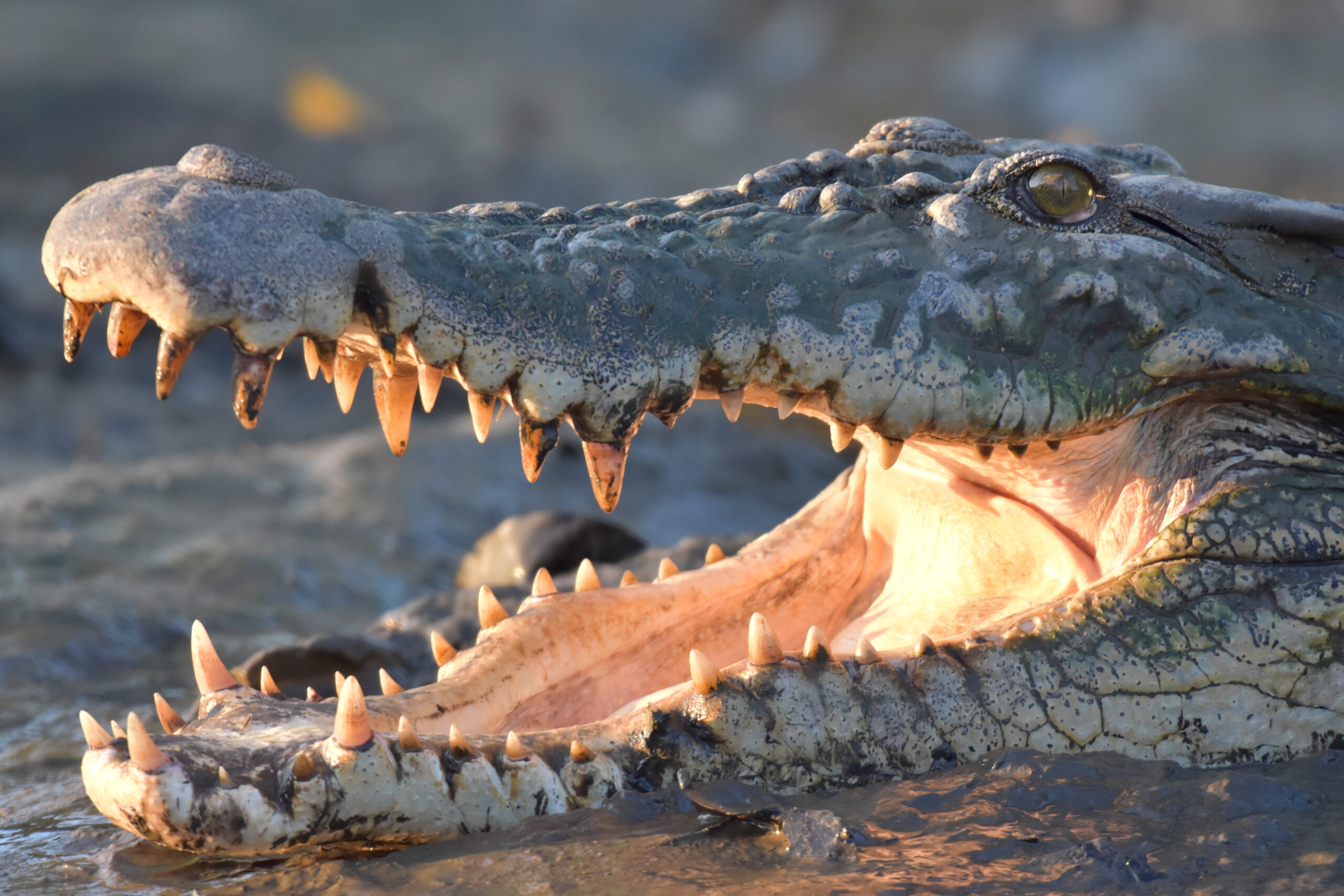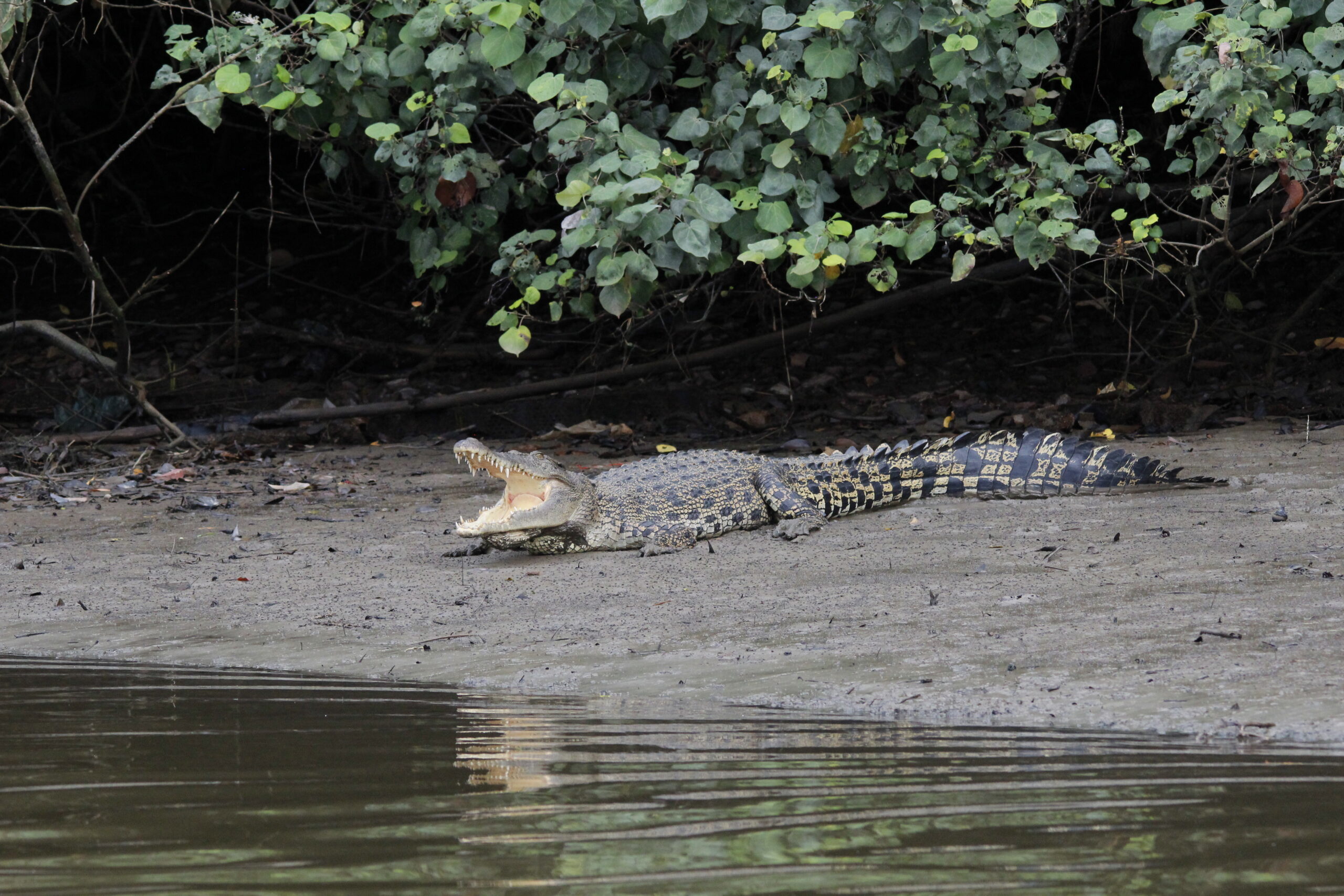Crocodiles are considered an important component of the natural ecosystem. As adults, they regulate the population of some animals, stopping overcrowding and thereby degrading the local habitat.
However, human society perceives crocodiles as voracious predators that endanger people.
Lately, crocodiles have been visible in the Brunei River, encroaching into areas such as farms, public, and residential areas.
Sightings went viral on WhatsApp, Facebook, Instagram, newspapers, and became a trending topic on social media.

Locals believe that the crocodile population is increasing and thereby threatening people, especially those near water bodies. As such, the public believes that authorities must kill or remove them.
Brunei Darussalam has two crocodile species. The first are freshwater crocodiles (Tomistoma schlegelii), also known as buaya air tawar or buaya penjulung. The International Union for Conservation of Nature’s Red List of Threatened Species (IUCN Red List) has classified this species as vulnerable.
The second species is the saltwater crocodile (Crocodylus porosus) or buaya air masin. Under the IUCN Red List, they are classified as predators and categorised as least concern.
These crocodiles are classified as Appendix I species under the Convention on International Trade in Endangered Species of Wild Fauna and Flora (CITES), which classify them as endangered and can only be traded for educational and
research purposes.
However, these species are not protected under Chapter 102 of the Brunei Darussalam Wildlife Protection Act. Trading or commercialising these crocodiles are regulated under the Brunei Wild Flora and Fauna Order, 2007.
Trading of wild crocodiles is prohibited by CITES in Brunei, except for crocodiles bred in captivity or crocodiles from farm establishments.
In general, and to allow crocodile trading, Brunei Darussalam must first downgrade the crocodile’s CITES appendix classification to Appendix II – endangered if trade is not monitored.
International trade is allowed when the Management Authority and Scientific Authority confirm the species is not threatened with extinction – and establish a crocodile farm to use as shelter for captured wild crocodiles.
The rising incident in human-crocodile conflict emphasises the need for developing an appropriate management strategy for Brunei crocodiles.

There is a need for a comprehensive assessment of the species and identify reasons that alter their behaviour and why they are moving out of their natural habitats.
Precautionary measures shall be identified to reduce or eliminate human-crocodile conflict.
A strong information and education campaign should be implemented for people to increase their understanding of the species and provide appropriate actions for similar crocodile sightings.
Everyone should understand the natural environment and thereby stop or minimise opening mangrove forest areas or eliminating wildlife habitats. -Mardani Haji Mahadi & Haji Mohd Dinie Haji Mahadi, Wildlife Division, Forestry Department, Ministry of Primary Resources and Tourism


